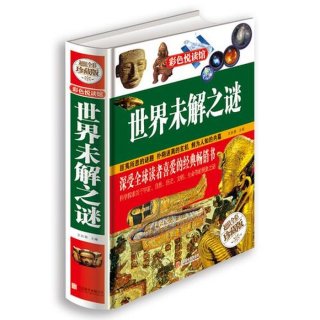最有趣的冷门知识英语,你不知道的英语冷知识
-
最,有趣,的,冷门,知识,英语,你,不知道,冷,

- 知识-自由百科知识生网
- 2024-02-21 04:30
- 自由百科知识网
最有趣的冷门知识英语,你不知道的英语冷知识 ,对于想学习百科知识的朋友们来说,最有趣的冷门知识英语,你不知道的英语冷知识是一个非常想了解的问题,下面小编就带领大家看看这个问题。
Article Summary
This article explores the most interesting and lesser-known facts about the English language. It is divided into six sections, each delving into a different aspect of English. The sections cover unusual words, peculiar grammar rules, unique pronunciations, quirky idioms, surprising etymologies, and fascinating linguistic trivia. The article concludes by highlighting the diverse and captivating nature of the English language.
Unusual Words
English is filled with a plethora of unusual words that are rarely used but have intriguing meanings. For instance, did you know that "floccinaucinihilipilification" is the act of estimating something as worthless? Similarly, "defenestration" refers to the act of throwing someone or something out of a window. These words may not come up in everyday conversation, but they showcase the richness and depth of the English vocabulary.
Furthermore, English has several words that are difficult to translate into other languages. Take "serendipity," for example, which describes the occurrence of finding something valuable or delightful by chance. Such words highlight the linguistic nuances and cultural specificities that make English a fascinating language to explore.
Peculiar Grammar Rules
English grammar can be quite perplexing, with its numerous exceptions and peculiar rules. One such rule is the placement of adjectives before or after a noun. While most adjectives come before the noun, some, like "former" and "latter," come after. Additionally, English is notorious for its irregular verbs, such as "go," which changes to "went" in the past tense instead of following the typical "-ed" pattern.
Moreover, English grammar allows for sentence structures that are not found in many other languages. The ability to form questions by inverting the subject and verb, as in "Is she coming?", is a unique feature of English. These peculiarities make English grammar both challenging and intriguing for language learners.
Unique Pronunciations
English pronunciation can be quite baffling, as words are not always pronounced as they are spelled. For instance, the word "colonel" is pronounced as "kernel," and "ghoti" can be pronounced as "fish" when following certain pronunciation rules. The irregularities in English pronunciation can be attributed to its complex history and influences from various languages.
Furthermore, English has regional variations in pronunciation, with different accents and dialects. From the distinct accents of British English to the diverse accents across the United States, English pronunciation adds a layer of complexity and diversity to the language.
Quirky Idioms
Idioms are expressions that have figurative meanings different from their literal interpretations. English is full of quirky idioms that can confuse non-native speakers. For example, "raining cats and dogs" means heavy rainfall, and "kick the bucket" means to die. These idioms often have interesting origins and reflect the cultural and historical aspects of the English-speaking world.
Learning idiomatic expressions is crucial for understanding the nuances of English and becoming fluent in the language. It allows for more natural and expressive communication, even if the literal meanings may seem bizarre at first.
Surprising Etymologies
The etymology of words reveals their historical origins and how they have evolved over time. English words often have surprising etymologies that trace back to different languages and cultures. For instance, the word "robot" comes from the Czech word "robota," meaning forced labor, and "ketchup" originated from the Chinese word "kôe-chiap."
Exploring the etymology of words not only deepens our understanding of English but also provides insights into the interconnectedness of languages and cultures around the world.
Fascinating Linguistic Trivia
English is a language filled with intriguing linguistic trivia. For example, did you know that the word "set" has the most definitions in the English language? It has over 430 different meanings! Additionally, English is the third most widely spoken language globally, with approximately 1.35 billion speakers.
Moreover, English has borrowed words from numerous other languages, making it a melting pot of linguistic influences. From French and Latin to Hindi and Japanese, English has absorbed vocabulary from various sources, enriching its lexicon.
Conclusion

English is a language that never ceases to amaze with its peculiarities, idiosyncrasies, and fascinating history. From unusual words and peculiar grammar rules to unique pronunciations, quirky idioms, surprising etymologies, and linguistic trivia, the English language offers a captivating journey of exploration. Its diverse nature and rich vocabulary make it a language worth delving into, both for native speakers and language enthusiasts alike. So, the next time you come across a peculiar English word or phrase, remember that there is always more to discover and learn about this fascinating language.
以上是关于最有趣的冷门知识英语,你不知道的英语冷知识的介绍,希望对想学习百科知识的朋友们有所帮助。
本文标题:最有趣的冷门知识英语,你不知道的英语冷知识;本文链接:http://yszs.weipeng.cc/zs/527310.html。
猜你喜欢
- 黄帝内经里面最基本常识 黄帝内经分几部分 2024-01-12
- 高中生必会的名著文学常识;七上文学常识 2024-01-12
- 飘过的知识 - 动态视力与静态视力 2024-01-12
- 霸王龙的生活常识;中国十大恐龙 2024-01-12
- 防止校园欺凌的小常识简短、防校园欺凌知识内容 2024-01-12
- 适合小孩子的航天小知识;航天科普小知识 2024-01-12
- 踏入社会一定要知道的事情 - 走出社会如何锻炼自己 2024-01-11
- 谈谈你对知识经济的理解、谈谈你对管理的理解 2024-01-11
- 讲一个冷知识,一些很实用的冷知识 2024-01-11
- 蚊子的冷知识搞笑 关于蚊子的幽默笑话 2024-01-11
























